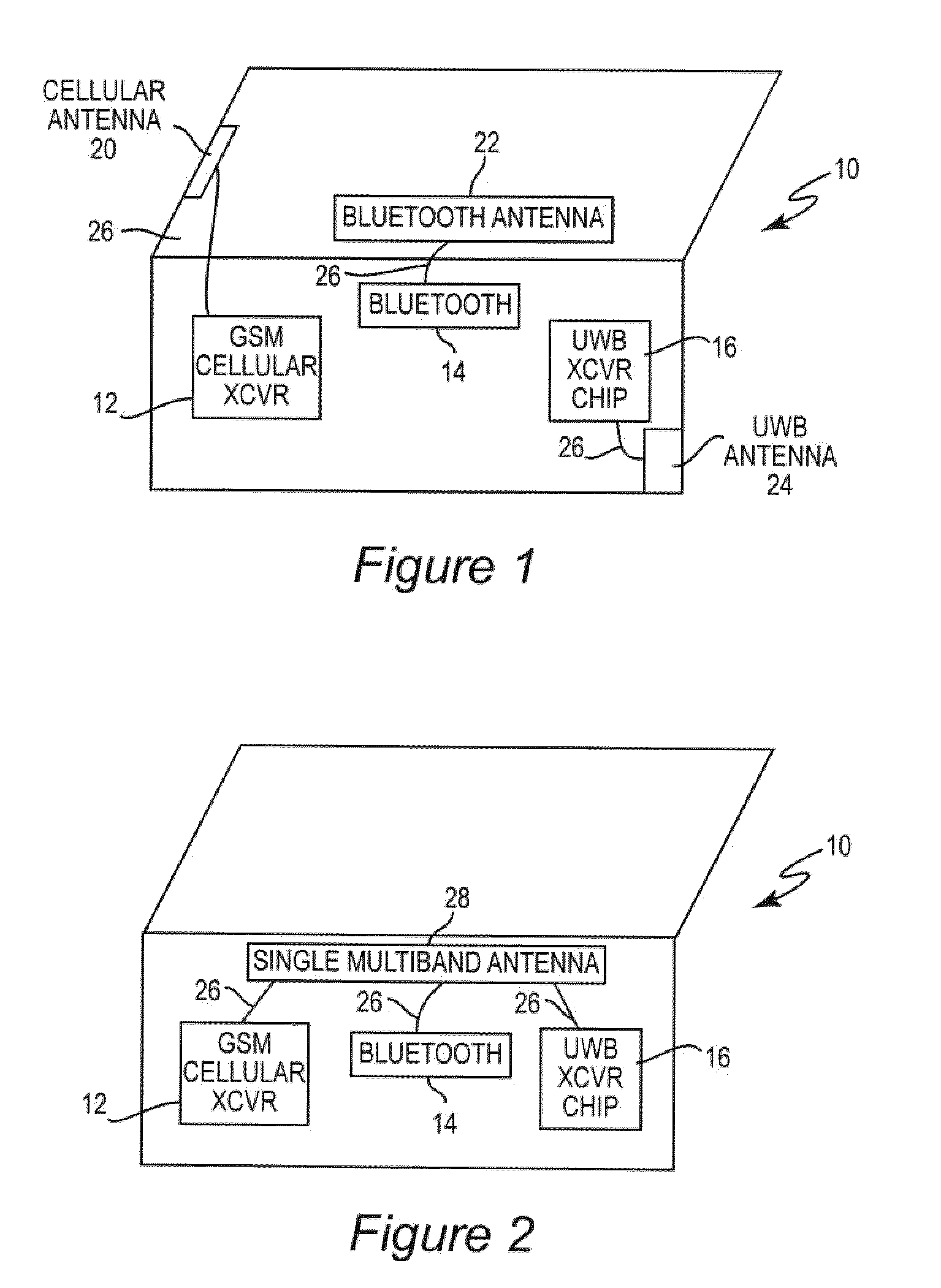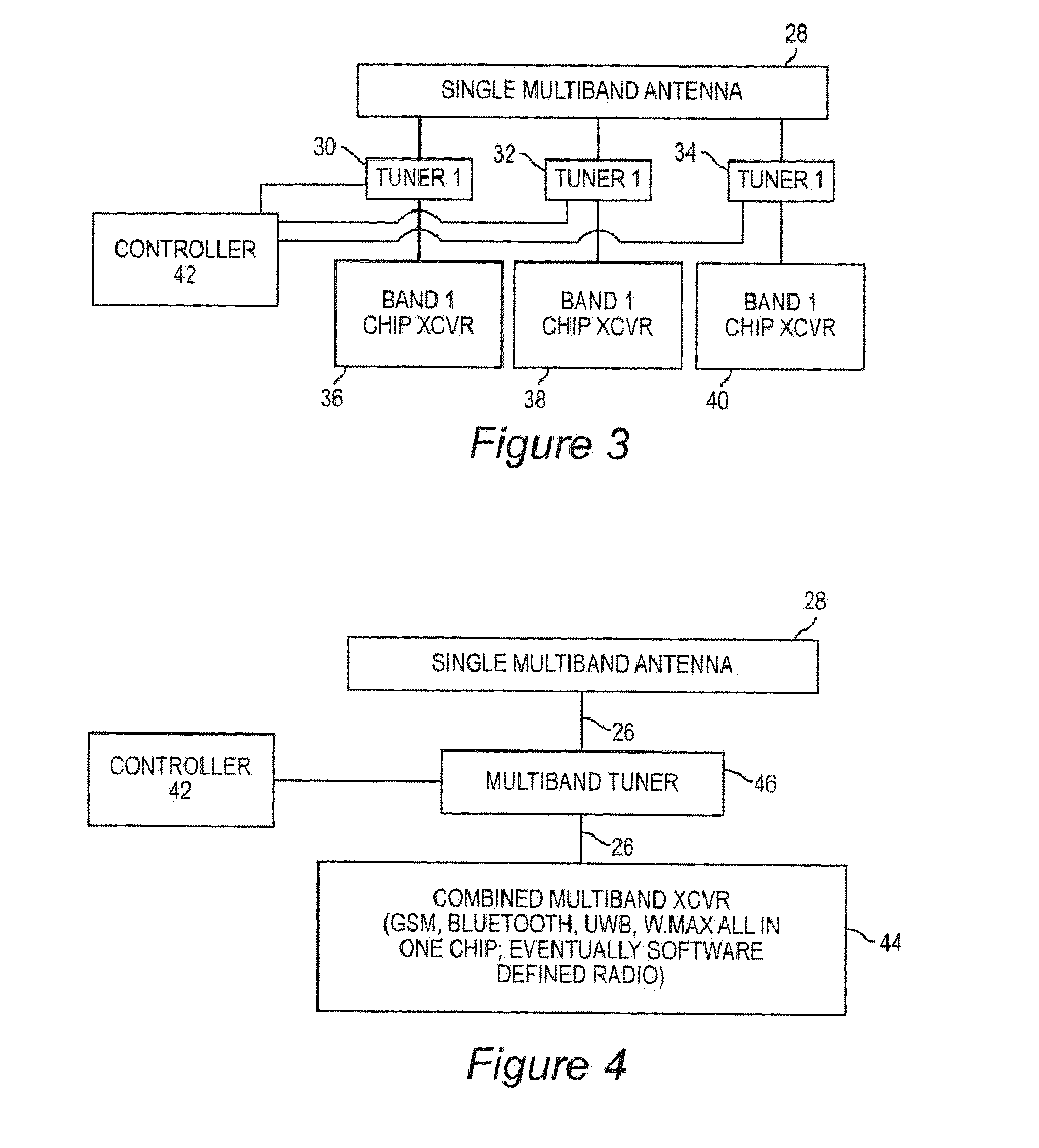Active antennas for multiple bands in wireless portable devices
a wireless portable device and active antenna technology, applied in the direction of antenna supports/mountings, radio transmission, transmission, etc., can solve the problems of multiple antennas, affecting the mechanical design affecting the quality etc., to simplify the mechanical design and layout of wireless portable devices, reduce the cost of materials, and reduce the variance in the manufacturing of different devices. , the effect of simplifying the antenna structur
- Summary
- Abstract
- Description
- Claims
- Application Information
AI Technical Summary
Benefits of technology
Problems solved by technology
Method used
Image
Examples
Embodiment Construction
[0026]Shown in FIG. 1 is an example of how cellphones or laptops or other wireless devices 10 are designed today. In general, different band transceivers (e.g., GSM cellular transceiver 12, Bluetooth transceiver 14, and ultrawideband transceiver 16) are connected to different antennas (e.g., cellular antenna 20, Bluetooth antenna 22, and UWB antenna 24) that must be affixed to, located within the packaging of the device, or included in the printed circuit boards of the device, thereby taking up space, feedline resources (e.g., feedlines 26), increasing the bill of materials, and adding complexity.
[0027]FIG. 2 illustrates the basic idea of the present invention which can be implemented in fixed or mobile wireless devices 10 such as computers, telephones, portable computing or communication devices, games, wireless post it notes, wireless memory media, personal data assistants and navigation assistants. One potential application of the invention is in the IEEE 802.11ad standard, where...
PUM
 Login to View More
Login to View More Abstract
Description
Claims
Application Information
 Login to View More
Login to View More - R&D
- Intellectual Property
- Life Sciences
- Materials
- Tech Scout
- Unparalleled Data Quality
- Higher Quality Content
- 60% Fewer Hallucinations
Browse by: Latest US Patents, China's latest patents, Technical Efficacy Thesaurus, Application Domain, Technology Topic, Popular Technical Reports.
© 2025 PatSnap. All rights reserved.Legal|Privacy policy|Modern Slavery Act Transparency Statement|Sitemap|About US| Contact US: help@patsnap.com



